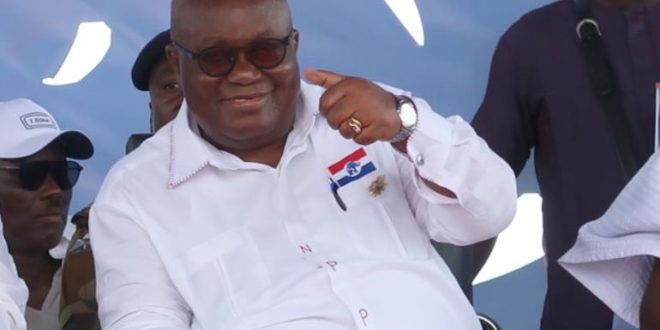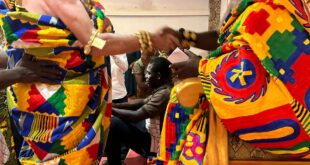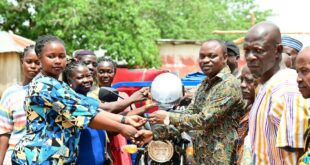President Nana Addo Dankwa Akufo-Addo has welcomed the passage of the controversial 1.5% Electronic Transfer Levy (E-levy) in Parliament.
Delivering the State of the Nation Address in Parliament on Wednesday, March 30, 2022, the President said the passage of the e-levy presents an opportunity for Ghana to revive its economy.
“Mr. Speaker, despite the protracted and sometimes acrimonious nature of proceedings, I am happy that the House has, finally, found it possible to pass the e-levy. I believe the levy is going to make a significant contribution to revenue mobilisation and the management of the economy, and I want to thank Members of the House for making this possible.”
President Akufo-Addo acknowledged the difficulties Ghana is expected to encounter in salvaging the struggling economy from collapse.
He was however confident that the government’s recent measures will yield positive results.
“The road to recovery will be hard and long, Mr. Speaker, but we have started on a good footing by accepting that we are in a difficult place, and are taking the difficult decisions that will get us out,” the President told the House.
Parliament approved the e-levy bill after amending portions of the document on Tuesday, March 29, 2022, despite a walkout by the Minority Caucus.
The Minority and some stakeholders in the telecommunications space have consistently resisted the passage of the E-levy, but the government has insisted that it will fix Ghana’s economic challenges.
During the second reading in Parliament on Tuesday, the Minority Leader, Haruna Iddrisu, noted that his side will have nothing to do with E-levy in any form or shape.
The Minority subsequently carried out their threat and staged a walkout, but that gave the Majority the upper hand to duly undertake the second and third reading of the bill which resulted in its passage.
The levy, which was amended from 1.75 percent to 1.5 percent will be a tax on electronic transactions, which includes mobile-money payments.
The charge will apply to electronic transactions that are more than GH¢100 on a daily basis.
 Home Of Ghana News Ghana News, Entertainment And More
Home Of Ghana News Ghana News, Entertainment And More





